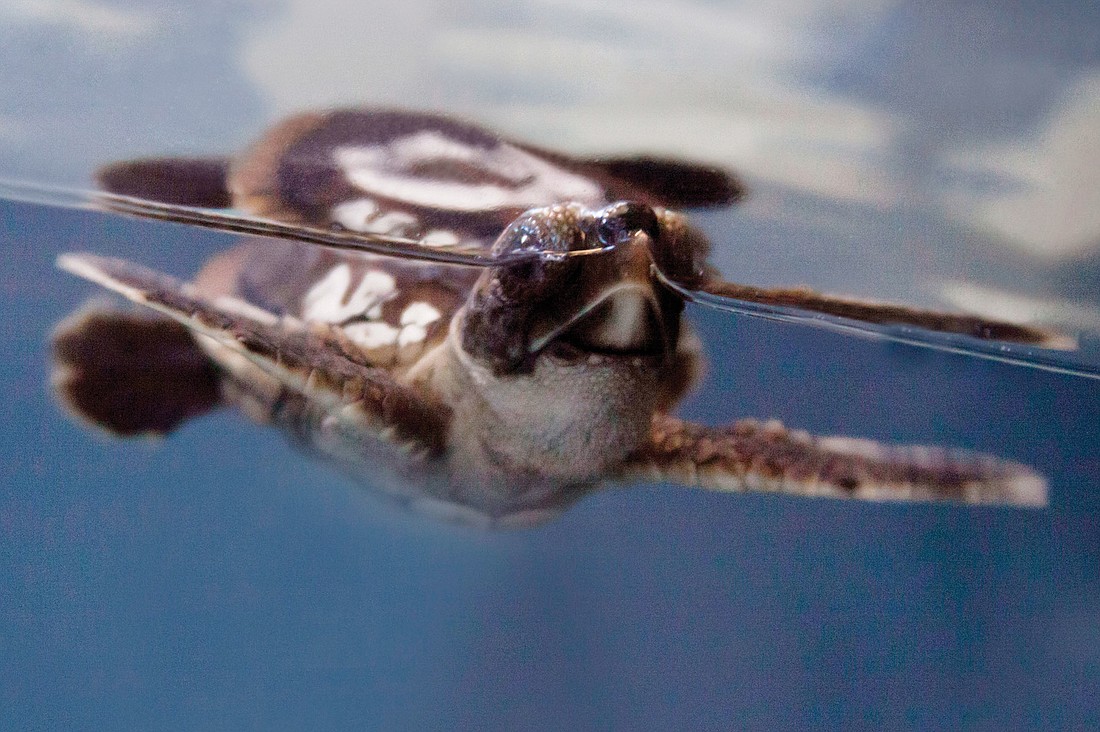- November 30, 2024
-
-
Loading

Loading

Sea turtles have finished nesting for the 2013 season, but that doesn’t mean turtles are experiencing empty-nest syndrome.
Nests continue to hatch, meaning it’s important to keep lights out and beaches clear through October, the end of nesting season.
Mote Marine Laboratory reports a strong season for loggerhead turtles, with 2,240 nests in its 35-mile patrol area this year, just behind last year’s 2,462 nests — a record in Mote’s 31 years of patrolling local beaches.
On Longboat Key, nesting numbers were slightly ahead of last year’s totals, with 639 documented nests compared to 628 in 2012.
Green turtles, which are unusual on local beaches, laid 30 nests in Mote’s patrol area — more than double their past record of 14 nests in 2007 and 2010. Three of this year’s green-turtle nests were on Longboat Key, which didn’t have any documented green-turtle nests last year.
Statewide numbers for loggerheads began declining in 1998 but started rebounding in 2008 on Florida beaches, according to a Mote news release. Loggerhead nesting in Florida has gone through decadal cycles of increases and decreases that may be influenced in part by broad-scale patterns in the North Atlantic.
Long-term research such as Mote’s sea-turtle monitoring program help scientists to better understand these overall population trends because the species takes decades to mature. It will take approximately 30 years before the hatchlings born on local beaches return as nesting adults.
“We’re very happy that green sea turtles broke their 31-year record this summer; that loggerheads had another outstanding season; and that our local numbers seem to be part of a broader upswing in the southeastern U.S.,” said Kristen Mazzarella, manager of Mote’s Sea Turtle Conservation and Research Program. “Although these increases might have many causes, it’s exciting to consider how our local conservation and education efforts may be helping with this positive change.”
Unexpected guest
We’ve had lots of dogs visit us at the Longboat Observer over the years, but this was a first: Longboat Key resident Bubba Fox brought a disoriented hatchling to the Longboat Observer office that he found while walking the beach.
We contacted longtime Longboat Key Turtle Watch volunteer Cyndi Seamon, who picked up the hatchling and released it after dark that night.
Fox did what Turtle Watchers typically ask beachgoers to do when they find a hatchling: He placed the turtle in a bucket with sand and water, and covered it with a towel. We kept the turtle outside — out of the air-conditioning — until Seamon arrived.
In the hour or so in which the young turtle was in our care, we nicknamed him Bubba in honor of his rescuer.
To report problems with sea turtle nests, eggs, hatchlings or adult nesting turtles, call Mote’s Sea Turtle Conservation and Research Program at 388-4331.
